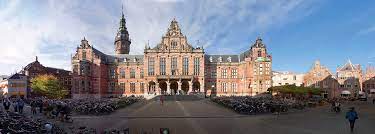University of Groningen: Sijbren Otto receives James Flack Norris Award in Physical Organic Chemistry
Prof. Sijbren Otto of the Stratingh Institute for Chemistry has been awarded the James Flack Norris Award in Physical Organic Chemistry of the American Chemical Society. He receives the award for his leading contribution to establishing the field of systems chemistry. The American Chemical Society is the number 1 chemical society in the world. The prize consists of a cash prize of $5,000 and a certificate.
This was announced in the September 27 issue of Chemical & Engineering News (C&EN). Besides Sijbren Otto, Ben Feringa is the only Dutch scientist that has received this award (in 2007).
James Flack Norris Award
The purpose of the James Flack Norris Award is to encourage and reward outstanding contributions to physical organic chemistry. The award was established in 1963 by the American Chemistry Society in commemoration of James Flack Norris, an American chemist. The official award ceremony will follow in March 2022 in San Diego, USA.
Self-replicating molecules
Sijbren Otto is Professor of Systems Chemistry. He studies ‘chemical evolution’. His research group developed a model system of molecules that can make copies of themselves, and showed that diversity can also occur as a result of the mutation of replicators.
Otto and his group had been doing research for some time using complex mixtures of molecules in search of specific molecules with certain properties. He realized that many interesting things happen in those mixtures and started to focus more and more on the system as a whole.
New, non-traditional approach
This approach breaks with the traditional way of thinking within chemistry. But according to Otto, it is precisely in the behavior of mixtures that answers can be found to important scientific questions such as the origin of life. “When we also discovered self-replicating molecules in those mixtures, things changed completely and we, as one of the first groups in the world, fully focused on system chemistry”.
When it became clear that this topic was going to be an important new part of chemistry, Otto also started to focus on increasing the coherence of this field of research. “In order to let this field develop properly, it is important that different people from different backgrounds identify with it. EU networks and conferences are important instruments to achieve this goal and I have therefore made an effort to lead and (co-)organize these networks and meetings”. This concerns the so-called COST networks – with around 95 affiliated research groups –, Marie Curie training networks and conferences.
Physical Organic Chemistry vs Systems Chemistry
The prize of the ACS is for the field of physical organic chemistry. “In both physical organic chemistry and systems chemistry, the challenge is to clarify the underlying processes and mechanisms, in other words to better understand the how and why behind processes”, says Otto. He also indicates that systems chemistry offers a completely new playing field for physical organic chemists. “And a background in physical organic chemistry (Otto once obtained his PhD in this field) is an excellent preparation for research in systems chemistry.

